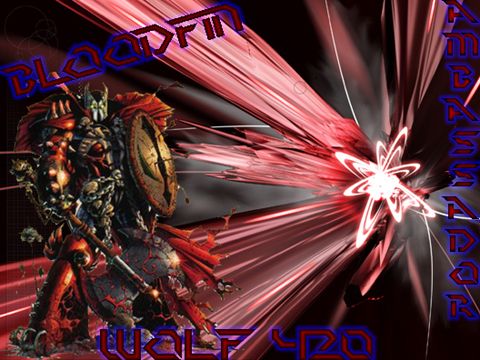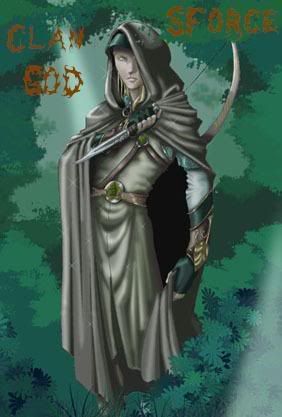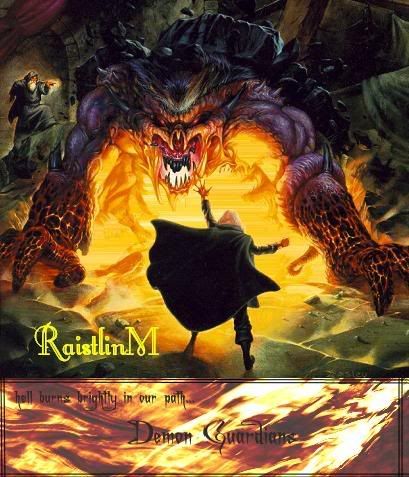Post by WolF_420 on Sept 17, 2008 13:30:47 GMT -5
I did not write this i just found it.
Found on a forum as a response to someone else.
READ THE ENTIRE ARTICLE.
No, I think there's room for a very good argument for ethical piracy.
If you look at the internet it is full of ideas that crap on other peoples business models. You have VoIP threatening the telco's, U-Tube and Streaming media threatening TV, Streaming audio threatening Radio, Free software threating the software giants... Even Linux threatening that corporate monster Microsoft.
The message is quite clear. If you think you have the market by its balls, look out... because the internet is coming, and with it a new breed of people who want to make the world a more open place and have the tools to do so. Young people with strong ideals.
So what if it's illegal!
Microsoft tried to get linux killed on legal grounds.
Bricks'n'Mortar radio stations tried to get the RA/FCC/RIAA to take out internet stations.
Telcos are trying to force compensatory legislation against VoIP providers.
Hell, the RIAA even wrangled a cut on blank CD sales in order to illegally compensate a business model.
This is a revolution led by the people, and one by one we're looking to behead the fat corporations. In response they are ALL trying to use the law as a tool to keep their slice of the pie - to comercialise and control us - to bind our freedoms in litigation, advertising and domination of distribution. They got money too - and up in the seats of government, YOUR government, it is THEIR money doing the talking. So of COURSE it is illegal.
This is a revolution and no revolution was ever fair or legal... expect blood to be spilled on both sides.
Did the black man win his freedom by keeping his head down, obeying the law and taking a 'yes masser' attitude ? Hell no. You must EXPECT to be condemned as a criminal before you can earn your freedom.
What IS the P2P movement as a whole ?
Well, perhaps P2P is about the people standing up against rabid cynical commercialisation and control of content. Perhaps we're headed for a new generation that flatly refuses to pay the machine rather than the artists... A generation who believes everyone should be able to make, market and sell (or give away) their own music rather than have to fit some corporate-led music culture who dictates what music should be, tells us who we should like, controls what radio stations can play and then sucks all of the money from the markets it manipulates.
Similar arguments go for Patents: first create legal grounds preventing distribution or innovation and then profiteer.
The RIAA argument? Well, they insist that P2P'ers are taking food from the mouths of artists. But, truth be known... most of the artists they represent are ONLY artists because they fit a demographic and would look great in a youth-press centrefold. The music industry controls the labels, the airplay, etc... They may give a $2m advance on your first album to get you to sign, but then they deduct from that all expenses in getting there. Usually, the advance covers the album and then you're on royalties.
The way the royalties work is that the artist gets almost nothing with the bulk getting split across the machine. This means that an artists main source of income is Concerts... Sure, you got an album... but if you want to make any money you have to get out there and work your ass off. Meanwhile, the labels get a free ride at the expense of BOTH consumer and artist.
They justify the free ride by being the ONLY way an artist can make it... because they traditionally controlled airplay and distribution. Essentially, you are only paying them to get around problems that THEY impose.
This is, in effect, similar to a Mafia protection racket... You pay the Mafia to protect your business from problems that the Mafia themselves cause for 'unprotected' businesses. Whether this type of activity is illegal or not depends purely on how much of a cut you give to government.
Well, the world is changing and, with all change there is friction. But, if P2P becomes the norm and we build new sharing models to beat the lobbyists and litigants then the music industry WILL change for ever.
Is it simple theft or is it a revolution?
I suspect fair bit of both.
==DToX
Found on a forum as a response to someone else.
READ THE ENTIRE ARTICLE.
No, I think there's room for a very good argument for ethical piracy.
If you look at the internet it is full of ideas that crap on other peoples business models. You have VoIP threatening the telco's, U-Tube and Streaming media threatening TV, Streaming audio threatening Radio, Free software threating the software giants... Even Linux threatening that corporate monster Microsoft.
The message is quite clear. If you think you have the market by its balls, look out... because the internet is coming, and with it a new breed of people who want to make the world a more open place and have the tools to do so. Young people with strong ideals.
So what if it's illegal!
Microsoft tried to get linux killed on legal grounds.
Bricks'n'Mortar radio stations tried to get the RA/FCC/RIAA to take out internet stations.
Telcos are trying to force compensatory legislation against VoIP providers.
Hell, the RIAA even wrangled a cut on blank CD sales in order to illegally compensate a business model.
This is a revolution led by the people, and one by one we're looking to behead the fat corporations. In response they are ALL trying to use the law as a tool to keep their slice of the pie - to comercialise and control us - to bind our freedoms in litigation, advertising and domination of distribution. They got money too - and up in the seats of government, YOUR government, it is THEIR money doing the talking. So of COURSE it is illegal.
This is a revolution and no revolution was ever fair or legal... expect blood to be spilled on both sides.
Did the black man win his freedom by keeping his head down, obeying the law and taking a 'yes masser' attitude ? Hell no. You must EXPECT to be condemned as a criminal before you can earn your freedom.
What IS the P2P movement as a whole ?
Well, perhaps P2P is about the people standing up against rabid cynical commercialisation and control of content. Perhaps we're headed for a new generation that flatly refuses to pay the machine rather than the artists... A generation who believes everyone should be able to make, market and sell (or give away) their own music rather than have to fit some corporate-led music culture who dictates what music should be, tells us who we should like, controls what radio stations can play and then sucks all of the money from the markets it manipulates.
Similar arguments go for Patents: first create legal grounds preventing distribution or innovation and then profiteer.
The RIAA argument? Well, they insist that P2P'ers are taking food from the mouths of artists. But, truth be known... most of the artists they represent are ONLY artists because they fit a demographic and would look great in a youth-press centrefold. The music industry controls the labels, the airplay, etc... They may give a $2m advance on your first album to get you to sign, but then they deduct from that all expenses in getting there. Usually, the advance covers the album and then you're on royalties.
The way the royalties work is that the artist gets almost nothing with the bulk getting split across the machine. This means that an artists main source of income is Concerts... Sure, you got an album... but if you want to make any money you have to get out there and work your ass off. Meanwhile, the labels get a free ride at the expense of BOTH consumer and artist.
They justify the free ride by being the ONLY way an artist can make it... because they traditionally controlled airplay and distribution. Essentially, you are only paying them to get around problems that THEY impose.
This is, in effect, similar to a Mafia protection racket... You pay the Mafia to protect your business from problems that the Mafia themselves cause for 'unprotected' businesses. Whether this type of activity is illegal or not depends purely on how much of a cut you give to government.
Well, the world is changing and, with all change there is friction. But, if P2P becomes the norm and we build new sharing models to beat the lobbyists and litigants then the music industry WILL change for ever.
Is it simple theft or is it a revolution?
I suspect fair bit of both.
==DToX






 RolePlayingGod
RolePlayingGod




 our government. Its corrupt,
our government. Its corrupt, 










 I just really liked it so i decided to share it.
I just really liked it so i decided to share it.
